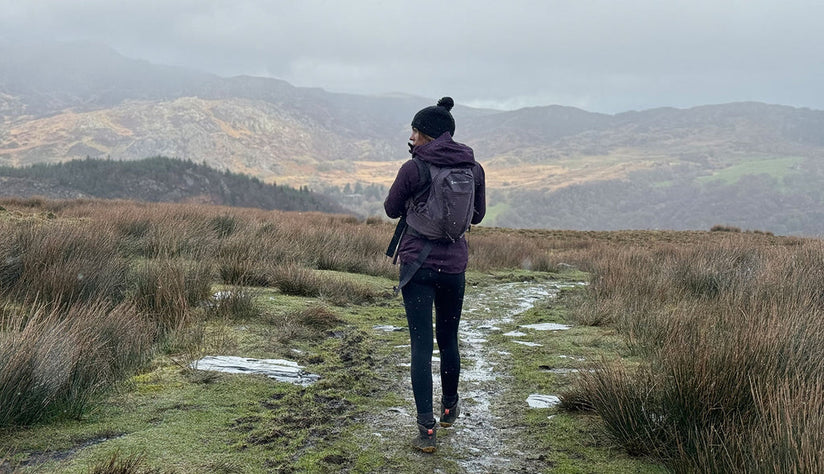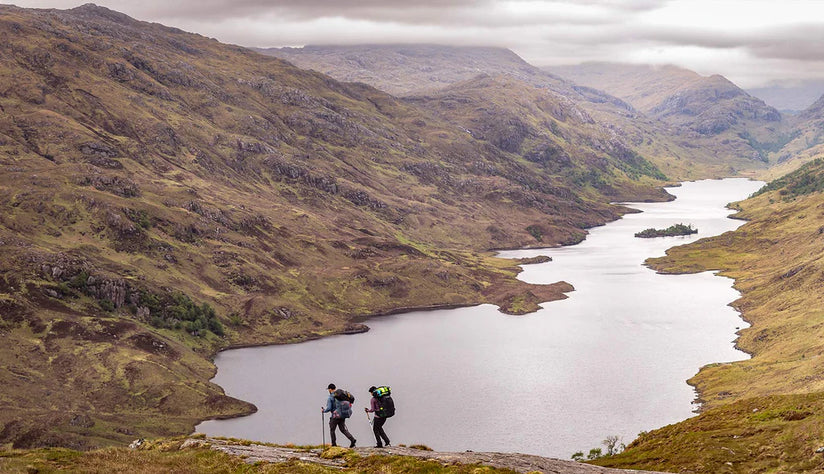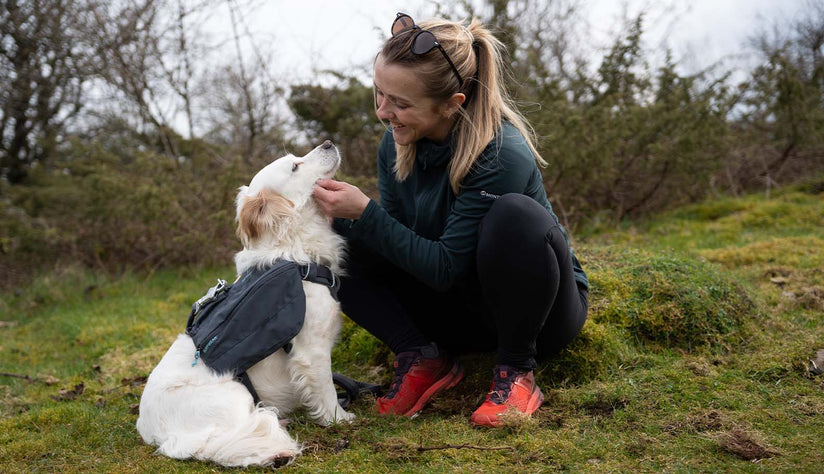According to leading mental health charity Mind, “Every year, one in four of us will experience a mental health problem.” This staggering stat highlights a need for more awareness on this often taboo topic, as well as support for those struggling.
Whilst everyone is different, we know one simple way we like to help our own mental health is by getting out into nature and reaping the benefits of exercise. For those in need of some motivation, we unpack some of the science behind how exercise makes you happier - exploring things like the runners high and the positive impact of forest bathing on the mind.
Recently #TeamMontane adventurer Jordan Wylie chatted to us about his year off social media and the positive impacts this has had on his mental health. Listen to his podcast to learn more about what Jordan discovered and why he believes taking on challenges is a great way to help build your mental resilience.
Another member of #TeamMontane who can personally testify to the power of exercise on your mental wellbeing is climber Grace Shephard. After battling with anorexia as a teenager, she turned to climbing to help with her recovery. Keep reading to hear her story and advice for anyone struggling with their own mental health.
Can you tell us about your mental health struggles?
I was diagnosed with anorexia nervosa when I was 13, after struggling for quite a few years prior. I was hospitalised for my eating disorder for many years, which left me with crippling C-PTSD (complex trauma).
As an adult, I was diagnosed with ADHD which affects my mood and behaviour quite significantly. As a result, I struggle a lot with feeling overwhelmed, anxiety and depression.

How did this impact your daily life?
It all still impacts my daily life, but I think as I get older and more self aware, I am able to manage it better. When I was younger, my eating disorder was very strong. I had so many rules and rituals around food and exercise; that was my way of coping when life felt very scary and unstable.
I am the restrictive type of eating disorder, so my weight dropped quite significantly over the years, which hospitalization prevented to an extent, but eating disorders are very hard to treat and I struggled to engage with treatment well. I was taken out of school at 13, I did my GCSEs in hospital, and never managed to finish my A levels, due to depression and readmission to hospital.
What coping mechanisms did you discover?
My eating disorder for many years was the only way I knew how to cope. I counted food, calories, exercise minutes, and was obsessed with certain numbers. I weighed myself constantly. I was terrified of those different numbers going up or becoming out of control. My need for control was my way of coping with the trauma responses that were so unbearably scary.
A few years ago, in my last hospital unit, I met my friend Laura who said she would take me climbing once we left the unit. She did, and I've never looked back. I fell in love with climbing instantly. The movement, the concentration it takes to make each move or solve the problem helped take me out of my chaotic world and gave me a sense of control that was different to my eating disorder.
How has climbing helped you to recover?
Climbing has helped me recover in so many ways. Firstly, community. Finding friends at the climbing gym was amazing for me. Living in a new city and knowing no one, I found the climbing community to be such a friendly, fun and supportive group of people. I have some amazing friends here now in Bristol who have supported and looked out for me.
Climbing itself, as I said before, the amount of concentration required to solve a boulder problem or climb a route takes up a lot of headspace, making it almost impossible to worry about other things, giving my brain respite from my illness.
It has also given me such a sense of empowerment. As I've continued to climb, I have found the motivation to gain healthy weight AND get stronger, so that I can climb more and harder. I feel more confident going for bigger moves and physically can keep going for longer. Because anorexia has such a physical impact on the body, getting strong and fuelling well is so important. Climbing is a really fun way to do that. It has helped heal the relationship with my body and food, giving me more and more reasons to keep pushing on in recovery.
Getting outside is also a big motivator. When I was sectioned in hospital, I never even knew there was such a thing as climbing outside and that it could be something I could also do. Having a taste of a different kind of life is not one I could ever trade again for the 'safety' of my eating disorder. Being outside is also my remedy to maintain my mental health, whether I'm climbing or not.

Do you have any advice for anyone struggling with their mental health?
I still struggle with my mental health and I am very much still on the journey. For me, getting outside every day is key, and having a healthy routine around food. Eating good food consistently will make you feel physically better and, therefore, help your mind feel better too. Sleep for me is also key, so I try to maintain a good sleep routine. But when I don't sleep well, I just try to give myself a bit more grace for things and not put too much pressure on myself.
I have had quite a bit of therapy and I find talking really helps. I think also, for me, my faith has been a significant part of my improvement in my mental health. It has enabled me to feel grounded and supported, and a part of something much bigger than myself.
Also, less practically, I have to continue to remind myself that I'm doing well and that I don't have to believe everything I think. I never believed recovery was possible for me, but now I believe it is. Not just for me, but for everyone. Finding a reason to live and continuing to fight for it. Ultimately recovery is hard, mental health illness is real, but we are stronger than we think, our minds are more resilient than we believe, and reaching the summit is possible. It just takes a long time.
Hear more from Grace
For anyone affected by Grace’s story, or struggling with their own mental health, please head to the Mental Health Foundation for further advice and support.












